Civil Liberties, Criminalizing Dissent, Habeas Corpus, Human Rights, Political Prisoner, Prison Industry, Supreme Court, Surveillance, Torture, Truth to Power
Podcast: Play in new window | Download


Holding Smart City Projects Accountable – Sidewalk Labs Toronto
Around the world, countries are talking about the idea of, and developing plans to implement, so-called “smart cities.” Smart Cities are urban areas that use electronic data to collect information, which is then used to manage financial assets and other municipal resources. Data is collected from citizens and electronic devices, and is then processed and used to monitor and inform the management of traffic, transportation systems, hospitals, schools, law enforcement, water supplies, and other community services, such as libraries.
The Smart City concept uses information and communication technology to interact with the cities infrastructure and to monitor its development and evolution. Proponents claim it will increase efficiency. Information and Communication Technology is used to increase the contact between local citizens and government to reduce costs and enhance the quality and interactivity of urban spaces within cities. Critics say it vests too much power in profit-minded corporations, and that total connectivity may makes smart cities a hacker’s dream.
In 2018, the Canadian government launched a Smart Cities Challenge offering prizes up to $50 million dollars for towns and cities that will work to improve residents’ lives through innovation, data, and connected technology. A few months earlier, in October 2017, the Google-affiliated company Sidewalk Labs announced plans to build a neighborhood “from the Internet up” along Toronto’s waterfront in a spot known as Quayside. The goal is to create an “advanced microgrid” to power electric cars, bring down housing costs, improve recycling and use data to improve public services. The project has had support from Prime Minister Justin Trudeau who declared it a “testbed for new technologies.”
Guest – Bianca Wylie, an open government advocate with a background in technology and public engagement, Bianca leads work on public sector technology policy for Canada at Dgen Network and is a co-founder of Tech Reset Canada.
—-
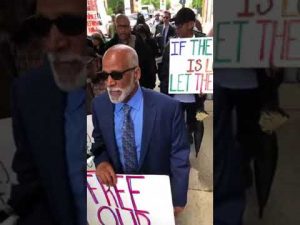
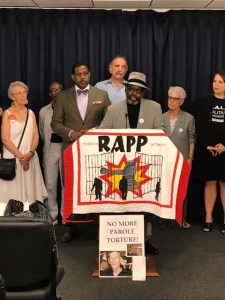
The New York State Parole Board: Failures in Staffing and Performance
“All people have in them a dream of being free again,” writes D.B., a 40-year-old who has spent 21 years in prison. During this time, D.B has had a total of 12 hearings at the Department of Corrections: four postponements, two de novo hearings, and eight board hearings.
Like D.B., many inmates have the same dream of being free, but for those being reviewed by parole commissioners W. William Smith and Marc Coppola, their chances are slim. In an extensive report co-authored by the RAPP (Release Aging People in Prison) and the Parole Preparation Project, “The New York State Parole Board: Failures in Staffing and Performance” outlines the serious problems within the New York State Parole Board, focusing on the board’s inability to perform while significantly under-staffed and allowing the continued malpractice of board commissioners Marc Coppola and W. William Smith.
W. William Smith has been on the board since 1996 when he was appointed by Governor George Pataki. He was re-appointed by Governor Cuomo in 2017. Although the rules and regulations around the Parole Board have been updated and modernized, Smith continues to deny parole to people convicted of violent crimes despite demonstrated rehabilitation.
Marc Coppola, like Smith, frequently denies parole because of a person’s crimes rather than their demonstrated low level of risk to public safety. His political ties and financial gifts to the elected officials in charge of confirming parole board members suggests that he is not a fair or ethical candidate for the position of Parole Commissioner. Both Smith and Coppola have been known to be condescending and unprofessional in their interviews for the parole board.
Guest – Dave George, Associate Director of RAPP or Release Aging Persons in Prison.
Guest – Jose Saldana, Jose was recently released from prison after serving 38 years. He works with parole reform organizations and RAPP.
—————-

—————-
CIA Sponsored Terror, Civil Liberties, Criminalizing Dissent, Guantanamo, Human Rights, Political Prisoner, Prison Industry, Supreme Court, Surveillance, Torture, Truth to Power, War Resister
Podcast: Play in new window | Download
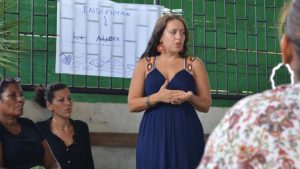
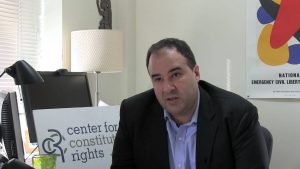
Challenges Lawyers Face As Democratic Institutions Dismantled
What are the the challenges lawyers on the left face in this historic period? That is the concern of today’s show. Since 911 we have seen the consolidation of an authoritarian state. The radical right working over the last 30 years and funded by the Koch brothers and their billionaire allies, are strategic and have been very successful.
They now hold the reins of power in 33 states, the Senate, House of Representatives, the Supreme Court, and the presidency. Their ultimate goal is to “dismantle the administrative state“, which is their formulation for taking away every social benefit that we have earned since 1930s. To prevent us from fighting back they have restricted democracy with voter suppression and gerrymandering. The right wing Supreme Court has declared that corporations are people and have the right to unlimited amounts of corporate dark money. Our access to information has also been constricted. Five major corporations own all the major media. New algorithms by Google and Facebook restrict access to people looking for alternative media, like Law And Disorder Radio.
We are also seeing the dismantling of programs that benefit people and the hollowing out of the democratic rights necessary to defend them. Racism and dehumanization are employed to divide and conquer. But at the same time we have seen the growth of social movements with our movement attorneys right in there fighting as important auxiliaries. Since 911 and the passage of the Patriot Act government surveillance of our private lives and political affiliations has become pervasive.
Guest – Attorney Natasha Lycia Ora Bannan, President of the National Lawyers Guild.
Guest – Attorney Baher Azmy, the litigation director at the center for constitutional rights National Lawyers Guild – Chicago 1937 as an alternative to the all white American Bar Association. It’s gotten principle was announced: human rights over property rights. The center for constitutional rights was founded by civil rights attorneys who had been active in the south in 1966 including William Kunstler, the attorney for Martin Luther King.
—-


Julian Assange And Political Asylum In Danger
WikiLeaks founder the truth telling publisher Julian Assange is in certain and imminent danger of being sent from England to America where he would likely be tried for espionage, a crime that carries the death penalty.
Assange and WikiLeaks have revealed American war crimes in the middle east, CIA global machinations , and the work of Clinton Democrats in preventing the popular Bernie Sanders from heading up the party ticket.
Assange is presently holed up in the Ecuadorian embassy in London where he was granted political asylum six years ago by past leftist president Rafael Correa. But now, with the change of presidents in Ecuador, Assange has been cut off from the outside world. He has no phone, no computer, and no visitors.
The fresh offensive against him occurred the day after American General Joseph DiSalvo, the head of the US Southern Command, the Pentagon’s arm in Latin America, visited the new right wing Ecuadorian President Lenin Moreno. Irene was told that if he did not cooperate he would not get an International Monetary Fund loan. Moreno has said that Assange is “an inherited problem” and is seeking s better relationship with the United States government, to whom he has already granted a military base.
Guest -Attorney Renata Avila has represented International human rights lawyer and digital rights advocate. In her practice, she represented indigenous victims of genocide and other human rights abuses, including the prominent indigenous leader and Nobel Peace Prize Laureate Rigoberta Menchu Tum. She also represented awarded journalist Julian Assange and Wikileaks since 2009. Avila sits on the
Board of Creative Commons, is a trustee of the Courage Foundation, – an organisation set up to assist whistleblowers at risk – and is an advisory board member of Diem25, a movement to democratise Europe launched by Yanis Varoufakis. Her book Women, Whistleblowing Wikileaks” was published by OR Books. She is currently writing a book on Digital Colonialism and regularly writes for several international newspapers.
—————-

—————-
Civil Liberties, Climate Change, Human Rights, Human Trafficking, Prison Industry, Supreme Court
Podcast: Play in new window | Download
Update:
- Climate Activists Win in Minnesota Supreme Court, Setting Stage for Historic Climate Necessity Trial
—-

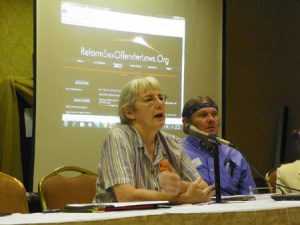
NARSOL: Sex Offender Laws
Tayler Boncal was a 22-year-old student teacher and track coach at Conrad High School in West Hartford. She was arrested this past February and charged with three counts of second-degree sexual assault for having a consensual relationship with an 18-year-old male student. The young man initiated the relationship and was not a member of the track team. If convicted of sexual assault Ms. Boncal will have to register as a sex offender. Doing so will most likely alter the course of her life.
NARSOL, a nationally recognized non-profit dedicated to restoring the civil and constitutional rights of registered sex offenders, believes that criminal charges in this instance are unwarranted. The group contends that any law that allows an adult to be criminally prosecuted for having a consensual relationship with another adult should be abolished.
Guest – Brenda Jones, has been involved in this cause since September of 2009. She has been executive director of state affiliate FAIR (Families Advocating Intelligent Registries) since its inception in 2010 and in 2012 became the first executive director of NARSOL.
—-
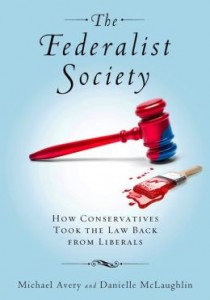
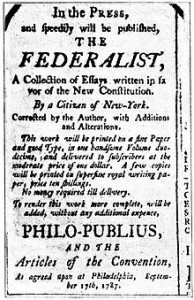
The Federalist Society: Shifting the U.S. Legal Landscape to the Right
With the recent nomination of conservative attorney Brett Kavanaugh to replace Justice Anthony Kennedy, the United States Supreme Court will have a majority of authoritarian anti-democratic jurists who support a powerful executive. At the same time, Donald Trump has wasted no time in appointing more conservatives to federal judgeships.
More and more we’re hearing that the once little-known Federalist Society is behind these appointments. But it’s now a new development. The Society was formed at Yale University in 1981, and has steadily and quietly been placing its lawyer members in positions of power in the government and judiciary.
In their 2013 book, The Federalist Society: How Conservatives Took the Law Back from Liberals, attorneys Michael Avery and Danielle McLaughlin track the movements of this small group of conservative law students and lawyers and their increasing influence. The Federalist Society has lawyer chapters in every major city in the United States and student chapters in every accredited law school. Members include economic conservatives, social conservatives, Christian conservatives, and libertarians. One of the things that has made the Federalist Society so very effective is their big picture agenda. While they may have differences of opinion on a range of issues, they have successfully put those aside to advance a far-reaching, long-lasting, and broad conservative agenda. Their agenda is chipping away at social gains made since the 1930s. Medicare and Medicaid and Social Security are on the block. So is Roe v. Wage. Citizen United, holding that corporations are persons and money is free speech, and the union-breaking Janus decision are just the beginning. Other attacks on democracy include voter suppression, voter ID laws, and gerrymandering.
Guest – Attorney Michael Avery, the former president of the National Lawyers Guild, and is an expert in the areas of constitutional law and police misconduct.
————-

————-
Civil Liberties, Criminalizing Dissent, Human Rights, Supreme Court, Truth to Power
Podcast: Play in new window | Download
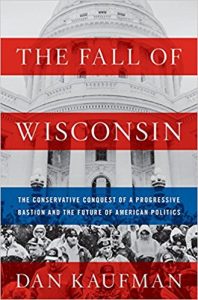

The Fall Of Wisconsin: The Conservative Conquest Of A Progressive Bastion And The Future Of American Politics.
For decades Wisconsin was known as a laboratory of democracy, the birthplace of labor and environmental movements, and home to the cherished “Wisconsin idea“, which championed expertise in the service of the public good. All this has changed under Republican Governor Scott Walker and the Republican state legislature.
There are two themes central to Walker’s success. He turned public opinion against well meaning public servants through absurd caricatures and trumpeted that far and wide through the almost limitless financial backing of right wing zealots like the Koch brothers. He also divided the labor movement, conquering it by splitting some workers from others. First he broke the public sector unions, and then, over a weakened opposition, passed a Right To Work law crippling the private sector unions. Huge amounts of dark money, gerrymandering legislative districts, voter suppression, and voter ID laws made this all possible. Over time, big money wrote legislation which was enacted into law. Eventually Donald Trump won Wisconsin’s electoral votes, making him the president.
Guest – Dan Kaufman, is a Wisconsin native and the author of The Fall Of Wisconsin: The Conservative Conquest Of A Progressive Bastion And The Future Of American Politics. He has written for The New York Times Magazine and The New Yorker.
—-
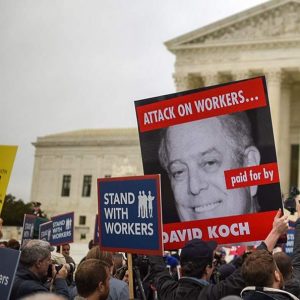
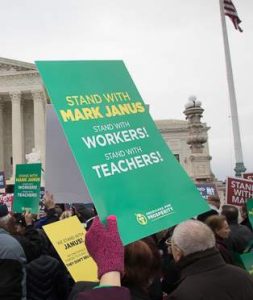
Janus v. American Federation of State, County, and Municipal Employees Council
With it’s Janus versus AFSME (American Federation of State, County, and Municipal Employees Council) decision the Supreme Court’s activist rightist majority has overturned a 40 year old precedent that allowed public-sector unions, like private sector unions, to charge non-members – who they are required by law to represent – a fee for that representation.
A strategic campaign organized by the State Policy Network(SNP) think tanks nationwide included a multi-state effort to reach 5 million teachers, librarians and other public sector workers affected by the Janus decision.
In Texas the State Policy Network is funded by the Koch brothers, Koch industries, AT&T, Verizon, Exxon mobile, Coca-Cola, and Blue Cross Blue Shield. The Texas SPN like others across the country is leveraging the Supreme Court decision as a means of starving unions of funds and eventually disbanding them all together.
They recently sent out a mailing, claiming government unions have undue political influence and stating that “by 2020 SPN aims to empower our interstate freedom network to rescue nearly 1,000,000 people from forced government union musician. This strategy could remove one billion dollars per election cycle from union budgets.”
Guest – Attorney Dean Hubbard, has been an attorney, organizer, educator and artist for workers’ rights and environmental and racial justice for more than three decades. Dean is the longtime Chair of the National Lawyers Guild Labor and Employment Committee. He is currently a strategic consultant to unions and social justice organizations. Among other movement gigs, he was Director of the Labor and Economic Justice Program at the Sierra Club, he was Senior Counsel to the Transport Workers Union of America and its NYC Local 100, he held the Joanne Woodward Chair in Public Policy and Advocacy at Sarah Lawrence College, and he co-founded the progressive workers’ rights law firm Eisner & Hubbard, P.C. He has published widely, and has organized and led investigations, tribunals and delegations on labor and human rights issues worldwide.
———————-

———————-
Civil Liberties, Human Rights, Human Trafficking, Supreme Court, Truth to Power, War Resister
Podcast: Play in new window | Download


U.S. Quits UN Human Rights Body
Last week the United States of America became the first country to voluntarily quit the United Nations 47 member main human rights body, primarily over Washington’s claim that the Human Rights Council is biased against Israel.
This was the Trump administration‘s latest snub of the international community. The Human Rights Council is tasked with spotlighting and approving investigations of suspected rights abuses. Never before has a member dropped out voluntarily. Diplomats and activists say that US ambassador Nikki Haley was the driving force behind the decision.
Efforts by the United Nations ambassador Haley to end or water down the routine scrutiny of Israel has failed in recent months at the United Nations General Assembly in New York. The Human Rights Council addresses and array of concerns including discrimination, freedom of expression, the rights of women, LGBT people, and people with disabilities.
Haley declared that “We are withdrawing from the United Nations Human Rights Council, an organization which is not worthy of its name.“
Guest – Phyllis Bennis is a fellow of the Institute for Policy Studies, where she works on anti-war, US foreign policy and Palestinian rights issues. She has worked as an informal adviser to several key UN officials on Palestinian issues. Her books including Calling the Shots: How Washington Dominates Today’s UN, and Understanding the Palestinian-Israeli Conflict.
—-
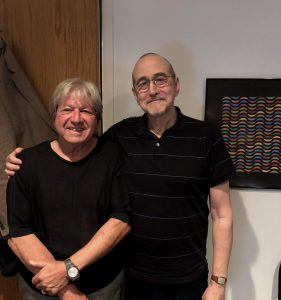

Mark Crispin Miller – Julian Assange, Voter Fraud and Fake News
WikiLeaks founder the truth telling publisher Julian Assange is in escalating danger of being sent from England to America where he would likely be tried for espionage, a crime that carries the death penalty.
Assange and WikiLeaks have revealed American war crimes in the middle east, CIA global machinations , and the work of Clinton Democrats in preventing the popular Bernie Sanders from heading up the party ticket.
Assange is presently holed up in the Ecuadorian embassy in London where he was granted political asylum six years ago by past leftist president Rafael Correa. But now, with the change of presidents in Ecuador, Assange has been cut off from the outside world. He has no phone, no computer, and no visitors.
The fresh offensive against him occurred the day after American General Joseph DiSalvo, the head of the US Southern Command, the Pentagon’s arm in Latin America, visited the new right wing Ecuadorian President Lenin Moreno. Moreno has said that Assange is “an inherited problem” and is seeking s better relationship with the United States government, to whom he has already granted a military base.
Guest – Mark Crispin Miller who is a professor of media studies at New York University. Professor Miller has frequently spoken about media propaganda, the engineering of consent for empire, fake news, and the destruction of the independent press. He has been awarded a Guggenheim Fellowship for the humanities and is a vigorous defender of Julian Assange and WikiLeaks.
—————————–

—————————–
Civil Liberties, Criminalizing Dissent, Human Rights, Supreme Court, Truth to Power, War Resister
Podcast: Play in new window | Download
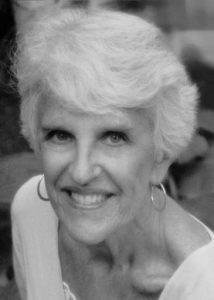

Lawyers You’ll Like: Attorney Nancy Stearns
In 1970, an unusual legal team came together in what would become a landmark case challenging New York’s restrictive abortion ban. The case was Abramowicz v. Lefkowitz, and the team consisted of all women, many of whom had just a few years of legal practice. The premise was equally unusual at the time: its critical testimony came directly from women who had had illegal abortions, lack of contraceptive access, and painful experiences either from adoption or forced motherhood.
One of those attorneys included Nancy Stearns. After the Abramowicz case influenced the state’s passage of the nation’s most liberal abortion law before Roe v. Wade, Nancy would go on to bring successful challenges to abortion laws in NJ, CT, RI and MA.
Nancy attended law school after working with the Student Nonviolent Coordinating Committee (SNCC) in Atlanta. For 12 years at the Center for Constitutional Rights she worked on a number of significant civil rights cases, including challenging New York City’s mandatory pregnancy leave policy in Monell v. Department of Social Services that resulted in a Supreme Court ruling that municipalities are liable for damages under 42 U.S.C. 1983. She represented members of Vietnam Veterans Against the War in a federal criminal conspiracy prosecution arising from anti-war protests, and she litigated to reunite families separated by the Babylift, in which Vietnamese infants and young children were brought to the U.S. for adoption at the close of the Vietnam War, despite having living parents.
Nancy is also an accomplished cabaret singer, making the circuit in New York City. She is a longtime member of the National Lawyers Guild; in fact the Guild’s Chapter is honoring Nancy and her exemplary career at its annual Spring Fling on June 8, 2018.
—-

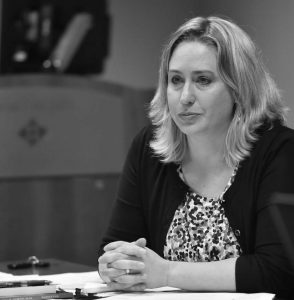
Cryptocurrencies
In 2008, Satoshi Nakamoto invented Bitcoin, the first and most prominent cryptocurrency, a peer-to-peer electronic cash system. While cryptocurrencies have become an international phenomenon, and many are aware of their importance, yet they are still not completely understood by large financial institutions, governments and much of the public. There are currently more than 1,500 cryptocurrencies, and the list continues to grow.
The general definition of cryptocurrencies are digital currencies using encryption techniques, hence the prefix crypto, to regulate the generation of unites of currency and verify the transfer of funds. This system operates independently of a central bank to create and outlet for personal wealth beyond restriction and confiscation. The U.S. Securities and Exchange Commission recently announced that it will be requiring digital asset exchanges to registers with the agency.
Guest – Professor Angela Walch teaches at St. Mary’s University School of Law. Her research focuses on money and the law, blockchain technologies, governance of emerging technologies and financial stability. She is a Research Fellow of the Centre for Blockchain Technologies of University College London. Walch was nominated for “Blockchain Person of the Year” for 2016 by Crypto Coins News for her work on the governance of blockchain technologies and her influential article in American Banker arguing that the coders and miners of public blockchains should be treated as fiduciaries.
——————

——————

























